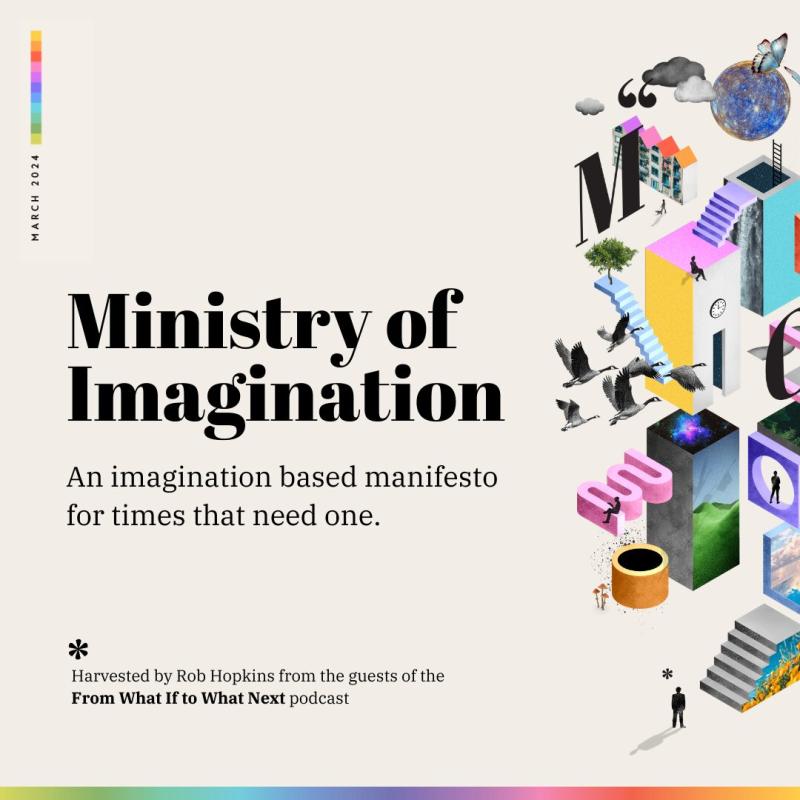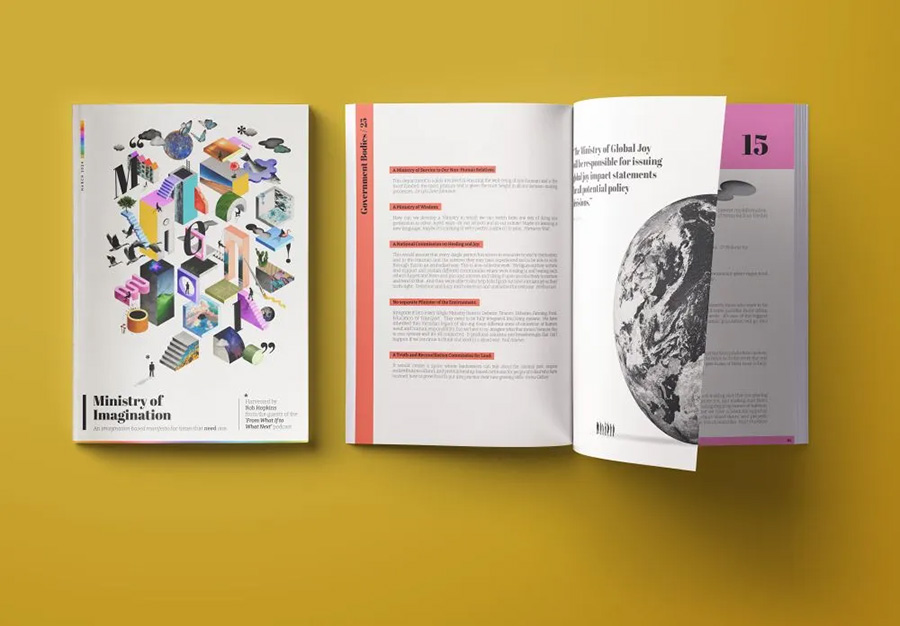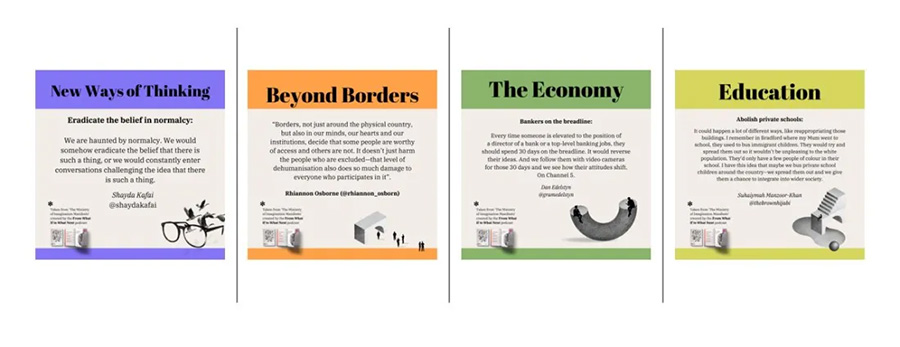
Article originally published at robhopkins.net.
This year (2024), 49% of the world goes to the polls in 64 countries. As Time magazine puts it, “2024 is not just AN election year. It’s perhaps THE election year”. The outcomes of these elections will hugely shape the world and our future, most importantly of all is the US Presidential election which could see Donald Trump returned as President, which would unleash what The Economist recently described as “the biggest danger to the world”. In most cases, voters are being asked to choose between deeply unimaginative manifestos, all firmly wedded to a business-as-usual economic model that is clearly and dangerously failing around the world.
The rise of the far-right around the world is profoundly troubling, underpinned as it is by dystopian visions of the future and the need for ‘strong’ leaders to protect us from those futures. But what would a Manifesto look like that was based on a positive vision of the future, one that is appropriately ambitious to the scale of the challenges the world is facing while at the same time bold, imaginative and audacious? I would argue that the failure of progressive parties and movements to set out bold visions of the future has left the space for the far right to fill, and that getting better at bringing positive futures alive in people’s imaginations is vital.
As political theorist Wendy Brown wrote recently:
“We can refute the premises of these positions until the cows come home. But only a compelling vision of a less frightening and insecure future will recruit anyone to a progressive or revolutionary alternative future—or rouse apolitical citizens for the project of making that future. This vision must be seductive and exciting, and it must be embodied in seductive and exciting leadership and movements, hopefully oriented by an ethic of responsibility”.
Since 2020, the fortnightly ‘From What If to What Next’ podcast has invited two guests to time travel into the 2030 that resulted from our doing absolutely everything we could possibly have done, and to describe that world to the listeners. In late March 2024, I stopped the podcast at its 100th episode in order to focus on other projects, but it remains as an amazing body of work.

Alongside the main episodes, Patreon subscribers also received bonus Ministry of Imagination podcasts, in which they were inaugurated as Ministers at the Ministry itself (part-Hundertwasser, part-Hogwarts, part-Yellow Submarine) and invited to choose 3 policies each that would rapidly accelerate our transition to a world in which those changes had happened. The result was over 600 deeply thoughtful, considered, audacious and ambitious policies covering everything from free art materials for all, to a Universal Basic Income and every company having to list all their failures as well as their successes in their annual reports.

This year, perhaps now more than ever, we need a taste of what policymaking underpinned by the radical imagination looks like. Recognising how extraordinary and powerful this collection of possibility-infused policies from an eclectic mix of people from all around the world (including Brian Eno, Rutger Bregman and Kate Raworth – ecologists, renegade economists, artists, prison abolitionists, somatic trauma therapists, printmakers, politicians, disability activists, rewilding practitioners, prison abolitionists and so many more) I felt it was important to collect them all in one accessible place. And so ‘The Ministry of Imagination Manifesto: an imagination-based manifesto for times that need one’ was born. We’ve painstakingly edited together all the policies, under subject headings, and the whole thing has been beautifully designed by Capella Andrean of The Creative Bloc.
Please share it far and wide. Send it to any policy-makers or politicians you know. Post it anywhere you can. Don’t let the possible be constrained by the imaginative poverty of our current manifesto writers.
The sponsorship we have has covered the cost of production, but we’d also love some funds to cover creating some printed copies. If you find this inspirational and you’d like to support it, please consider making a donation. You can find a paypal donate link in the original article.
As Ruha Benjamin in her 2024 book ‘Imagination: A Manifesto’ puts it:
“A world without prisons? Ridiculous. Schools that foster the genius of every child? Impossible. Work that doesn’t grind us to the bone? Naïve. A society where everyone has food, shelter, love? In your dreams. Exactly”
The Ministry of Imagination manifesto is supported by the good folks at Boomtown Festival, Wake the Tiger, Team Love, Bath Spa University, Moral Imaginations and Transition Network. My deepest thanks to Tamzin Pinkerton for her help with editing it, Capella Andrean, every single Minister at the Ministry of Imagination for their brilliant policy ideas, and every subscriber who made the podcast possible. Thanks.
We’d love to hear what you think of it. Do let us know in the comments of the original post.
Rob Hopkins is a cofounder of Transition Town Totnes and Transition Network, and the author of The Transition Handbook, The Transition Companion, The Power of Just Doing Stuff, 21 Stories of Transition and most recently, From What Is to What If: unleashing the power of imagination to create the future we want. He presents the podcast series ‘From What If to What Next‘. In 2012, he was voted one of the Independent’s top 100 environmentalists and was on Nesta and the Observer’s list of Britain’s 50 New Radicals.
